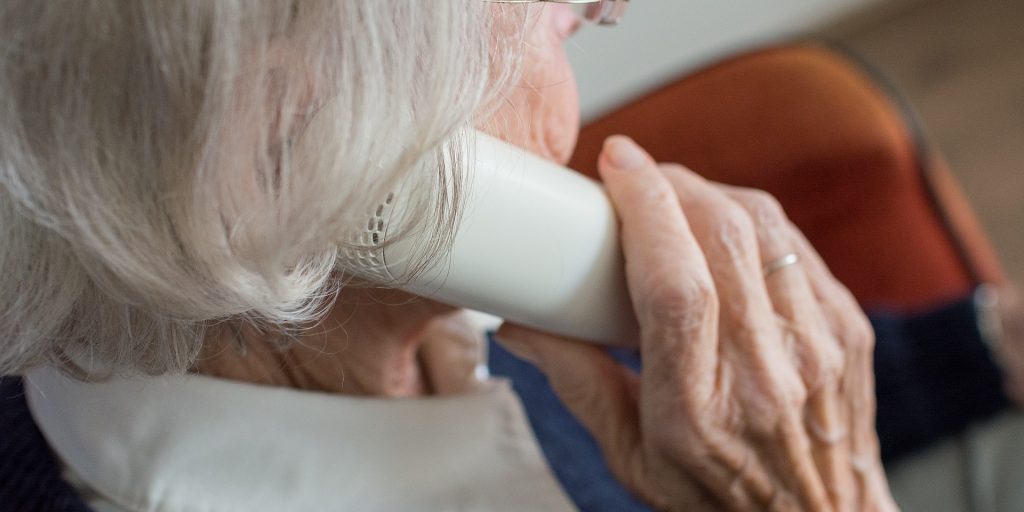Community EngAGEment: University, nonprofit and municipal partnerships emerging from the pandemic
The COVID-19 pandemic has underscored the pre-existing public health crisis of social isolation among adults of all ages. Two recent nationally representative surveys revealed that American adults of all ages experience loneliness. For example, among adults ages 18 and older, 47 percent have reported not having meaningful daily social interactions and more than one third of American adults ages 45 and older have reported feeling lonely.
Seeing a need in the region, Henrico County, Va.’s Advocate for the Aging joined forces with the Longevity Project for a greater Richmond to create and launch create and launch a program that would address the growing social isolation prevalence. Leveraging available resources and a network of stakeholders, the team created the EngAGE at Home program to address social isolation challenges and positively impact social connectivity among older adults in the greater Richmond region.
EngAGE at Home participants were members of Henrico County’s Friendship Cafés. Funded through Older Americans Act Title III nutrition services and managed by the region’s area agency on aging, Friendship Cafés are a congregate meal program and gathering place where community residents receive a nutritious midday meal while interacting with good friends and participating in diverse activities. Friendship Cafés help fight social isolation in older adults by creating opportunities for making new friends and improving social connectivity, but due to the impacts of COVID-19, Friendship Cafés, along with congregate meal programs across the country, had to indefinitely close for safety reasons. The aging services network quickly came together to continue crucial nutrition services to participants, yet the social aspect of the Friendship Cafés could not be offered due to pandemic precautions. Twenty Friendship Cafés operate throughout the greater Richmond region, which includes the city of Richmond and suburban and rural counties, serving 500 older adults annually. Given that these Friendship Cafés served the entire region, Henrico County and the Longevity Project envisioned the EngAGE at Home program for everyone, regardless of where they resided.
Early in development, the partnership between the Longevity Project and Henrico County hosted listening sessions and an initial pilot to collect feedback prior to launch. Additional members of the Longevity Project team, including its Elder Voices group, were critical elements of EngAGE at Home’s creation and implementation. As a collaborative effort between the Longevity Project and Henrico County, insights from the stakeholders also played a crucial role. After gaining community input, each program partner contributed to the implementation and sustainability of the program. Henrico County’s Advocate for the Aging connected long-time Friendship Café attendees to the innovative educational program. Longevity Project provided access to instructors and weekly programming.
The EngAGE program, offered free of charge, was designed as a weekly virtual program that hosted opportunities for engagement, learning and sharing. Topics varied each week and included local resource updates, financial safety, long-term care continuum options, and more. A wide variety of local experts volunteered their time to provide session content and facilitation.
Input from the region’s elders indicated that technology, when accessible, can be used in innovative ways to keep community members connected and has become increasingly relied upon to manage daily functioning and social support. However, inequitable access to broadband, appropriate hardware and training/assistance with using technology posed barriers to delivering the program via the internet. Hence, EngAGE at Home was designed as a telephone only intervention. With the goal to make the program accessible to everyone, regardless of technology access, the program implemented Uber conference, a telephone-based conference call application that automatically calls participants at the start of the session. This was shown to be especially beneficial to participants in the height of the pandemic and was expressed as a helpful tool to bring structure to often mundane parts of the week.
The primary short-term goal of the EngAGE program was to promote social connectivity for older adults who were experiencing the effects of isolation during quarantine, a goal that was in immediate response to the pandemic lockdown. Long-term goals have evolved in addition to the original goal, and now hopes to foster natural conversation and connection between already-existing and new relationships of the participants, and to reach a wider population with evidence-based and supportive information.
Both Henrico County and Longevity Project share a goal to reduce social isolation among community elders; through combined effort and implementation of an innovative conference-call based program, results indicated that 80 percent of the 103 participants agreed or strongly agreed that the EngAGE at Home program made an impact on their social connectedness. Results indicated that participants used the program as part of a collection of resources to reduce isolation and promote positive connections in their lives. Furthermore, participants reported that the consistency of the program provided structure to their lives in these uncertain times. As doors begin to open again, the team envisions EngAGE at Home to remain virtual in a continued effort to combat social isolation in greater Richmond.
Alexa Van Aartrijk, MS is a gerontologist and serves as the director of education and engagement for the Longevity Project for a greater Richmond (LPgR).
John T. “Jay” White, MS, EdD, CDP is a gerontologist with the LPgR.
Gigi Amateau, MS, PhD is a gerontologist and director of research for the LPgR.
Ayn Welleford, MS, PhD, AGHEF is a gerontologist, associate professor and gerontologist for Community Voice with Virginia Commonwealth University’s Department of Gerontology.


















